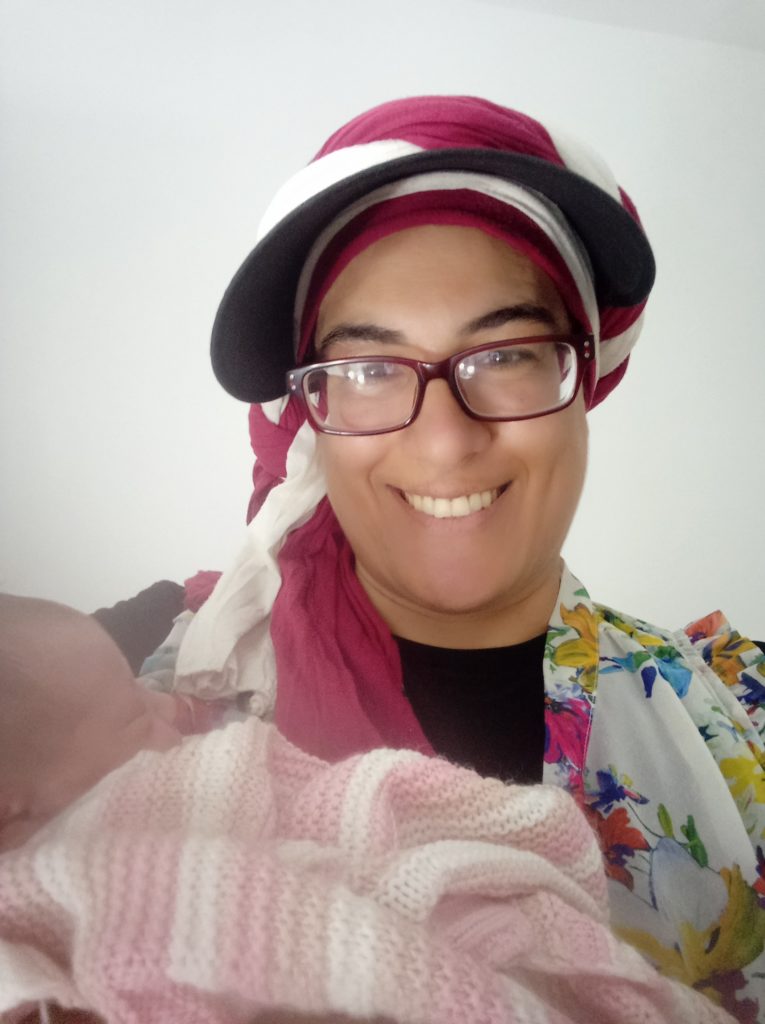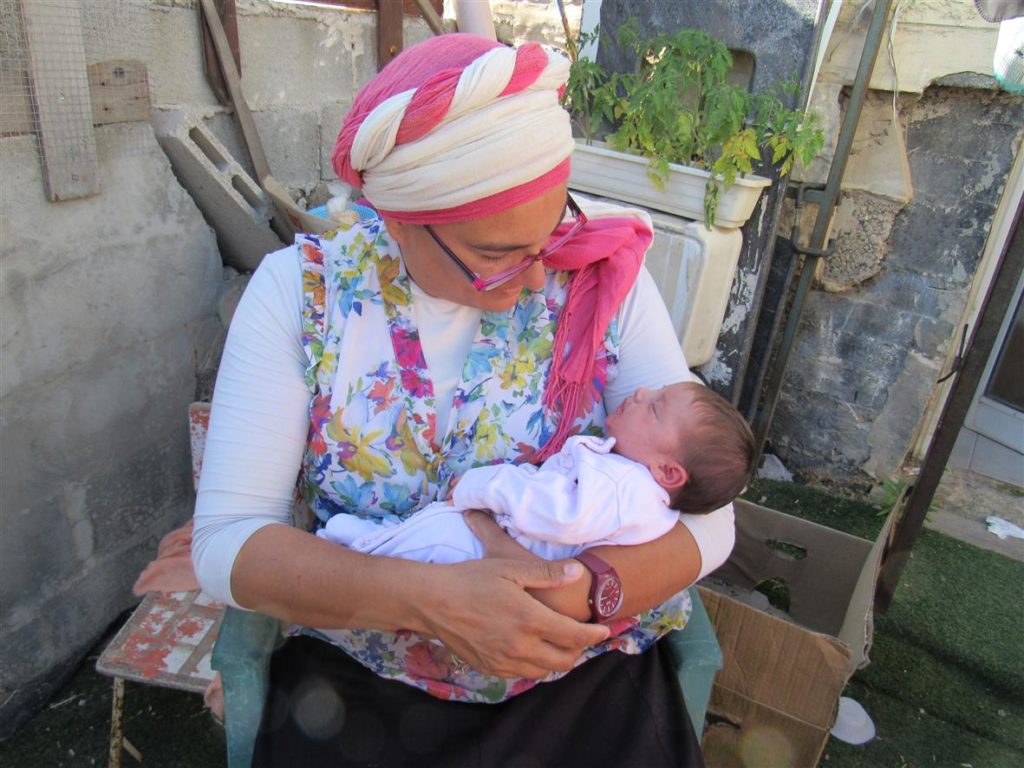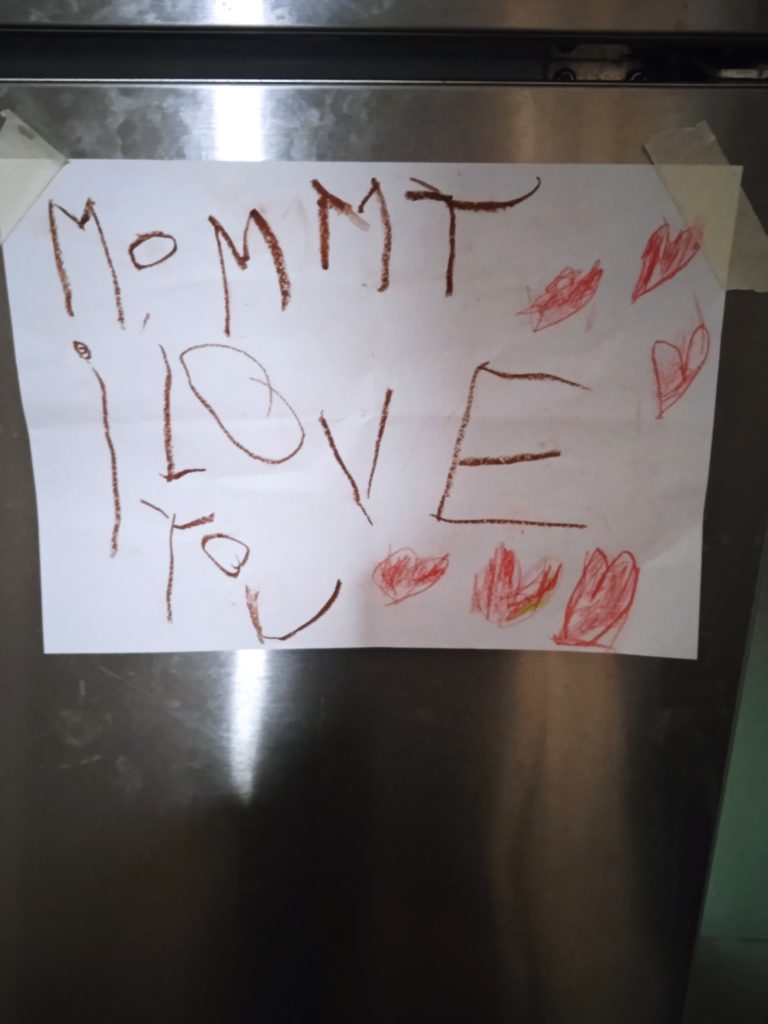I mentioned recently that August was a milestone month in a number of ways for us. It’s a milestone in an additional way, one that I was thinking about a lot when I went to see my newest grandson for the first time a few weeks ago.
As I was holding him, it occurred to me that he is the third child of my third child (also born in August). We made a huge, life changing decision when my third child was born, a shift that affected everything in our family that happened ever since then.
Until that point, I was the breadwinner in the family. My husband was a full-time avreich (Torah student), and we lived a very idealistic, simple and mostly happy life.
The issue that was becoming more and more of a conflict for me was needing to rely on others to care for my children. When I had to go back to work after the birth of my first child, I looked for a babysitter close to my office. Our baby traveled an hour in each direction with me from our home to my office, snug against me in a baby carrier. I worked from 8:30 – 1:30; I nursed him when I dropped him off at and picked him up from the babysitter (a lovely woman who was the mother of six children). Mid morning my babysitter would call and say, “Avivah, your baby is hungry,” and I’d dash out to nurse him.
When he was young toddler, he started gan (preschool). A van would come to pick him up and drop him off. We took him to one neighbor in the morning who put him on the van since we had to leave before it came, and then a different neighbor would take him off the van, since I wasn’t yet home at that time. I’d get home around 2:45 pm, and then I’d spend the rest of the day with my two little children.
Until that point, I took my children to private babysitters who were neighbors or friends who cared for children in their home. It was a home environment, there were a limited number of children, and it was just one caretaker other than myself, minimizing the attachment difficulties for a young child. It was as good a setup as I could find and though I didn’t love it, I overall felt fine with it.
However, I felt increasingly concerned about my son. One day I got a call from the morning neighbor who saw my son had been dropped off in the afternoon on the sidewalk in front off our building, and the afternoon neighbor I was paying to take care of him didn’t get him. He was left standing there, 2 3/4 years old, not knowing who was going to take care of him and unsure where to go, until the morning neighbor took him in and then called me.
I was on the bus home when I got this call, and it tore my heart. There was literally nothing I could do about it at that moment. I didn’t read any books or get any message anywhere, from anyone, that maybe something wasn’t good about this kind of childcare arrangement. After all, this is the kind of thing all working mothers had to do, and I was fortunate to work it out as well as I did.
Rationalizing aside, I had a strong gut feeling that this was too high a price for a small child to pay, and that day, I told my husband, I can’t and won’t do this to our son anymore.
I was also exhausted all the time and though only in my early twenties was constantly wondering, “Is this what my life is supposed to be like, racing on a hamster wheel?” I had a decent job that I enjoyed, I had a wonderful husband and adorable children, and a job I did well and got positive feedback for on a daily basis. It didn’t make sense to give all of that up, did it?
It was two months before I was due that we made the decision that when our baby was born, I would stop working. How would we manage financially? Well, with three children ages three and under needing childcare, that would have taken 3/4 of my income, so I wouldn’t be coming home with that much once I paid all the babysitters. When we did the math, we figured out that if we would simplify even more and my husband could get tutoring work, we could make ends meet.
That’s what we did. It was tight but the feeling of happiness I had when every day, I put my own son on the preschool van in the morning and later in the day took him off, was euphoric. It felt right.
Being home with our children continued to feel right throughout the years – I’m not saying it was always easy and I was continually glowing with happiness, because it wasn’t and I wasn’t. Periodically there would be life circumstances that would cause us to reevaluate if this was still something doable for us, but my husband and I continually came back to the decision that it was best for our children that I be home with them full-time.
That was a long time ago – my third child just turned 27. Now it’s my own children that have to make the tough decisions that we faced about working with young children.
When I think of young families today, my heart goes out to them. Even if they have an awareness of the importance for young children of being with their primary caregiver around the clock, logistically it’s so daunting for them.
My husband and I made the decision that was was right for our family, and we’ve continued to live simply and frugally throughout all these years to continue to make this possible. We’ve had many experiences we couldn’t have had if I had been spending the bulk of my day working outside of the home. But more than that, I had the inner peace of knowing that I was able to be the primary caregiver for our children and create a sense of stability and consistency throughout the years as we experienced big and small changes.
If you’re living in the modern world, regardless of what community you belong to, you have to be somewhat countercultural to make the choice to stay home with your children. You need to be very intentional and thoughtful to find a way to meet the needs of the children in a world in which working women have become the norm and daycare an option that is seen as just as good as being home with mom. (It’s not.)
Am I critical or judgmental of women who work outside the home? Absolutely not!
What does deeply concern me is that I don’t see the crucially important societal conversation happening about what is best for young children. Children have needs that have clearly been proven to be necessary for their healthy emotional development. We don’t have to guess about this.
We don’t want to make mothers feel bad by bringing up the concern about how children might be negatively impacted if she isn’t able to be present with them for a number of hours a day – but the children can’t speak up for themselves. They literally have no voice. And if a mother has never heard a different perspective or had information shared that might affect how she makes choices, how can she make an informed decision?
I’d like to encourage parents to learn about the attachment needs of young children, and then think outside of the box about how to meet the needs of our youngest and most vulnerable. Maybe you need to work for financial reasons, but is there a way to work from home, or cut your hours, or cut your expenses, or work alternate hours when your children are sleeping? Can parents alternate their schedules to minimize the time children spend in the care of others, or can they be cared for by relatives or friends?
There are no easy answers but my experience has been that it’s worth asking those questions. When you get clarity about what you want, possibilities and solutions you didn’t consider previously often appear.
What benefits children will benefit families, and benefit our society at large. I don’t think having more children grow up with a healthier sense of themselves can be anything but positive! This isn’t an issue of compromising our needs to make someone else happy, or giving up what matters most for something inconsequential. It’s quite the opposite – finding a solution that you know meets the needs of your entire family creates more peace and contentment for everyone.
Avivah


